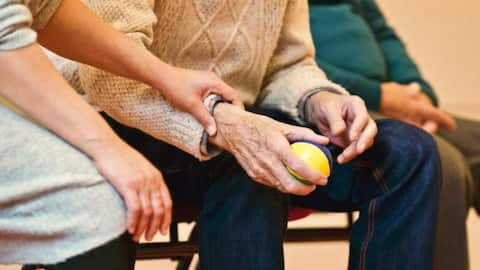Body composition tests: A comprehensive health metric replacing BMI
What's the story
Body Mass Index (BMI), a traditional health measure, is being replaced by body composition tests for a more detailed health assessment. Dr. Richard Joseph, a metabolic health expert at Brigham and Women's Hospital, described BMI to NPR as a "very crude measure." According to NPR, a former high school athlete Mana Mostatabi has adopted body composition scans after her BMI inaccurately categorized her as overweight despite her fitness level.
Scan adoption
Body composition scans: A new tool for health tracking
Mostatabi has found body composition scans to be a valuable tool for tracking her health metrics. These scans measure body fat and muscle mass, providing a "more detailed picture" of an individual's health status. Over the past year, she has lost 4.54kg of body fat and gained several pounds of muscle using this method, finding it "really motivating".
Scan options
The rising demand and accessibility of body composition scans
Body composition scans are gaining popularity, with various types available. While MRI is the gold standard, it's often impractical due to cost and accessibility. NPR reports that Dr. Joseph prescribes DEXA (Dual Energy X-Ray Absorptiometry) scans for certain patients, which assess bone mineral density, body composition, and fat distribution. Another popular option is bioelectric impedance analysis, available in gyms like Anytime Fitness and Orangetheory Fitness.
User experience
InBody scan: A convenient tool for fitness tracking
Mostatabi had her first InBody scan at Orangetheory, describing it as a "super simple process" that takes less than a minute. The results are sent directly to a smartphone app, providing a benchmark to improve upon. She used this tool during her strength challenge at Orangetheory, where she attended five to six classes per week combining resistance training, weight lifting, cardio, and rowing.
Healthier bodies
The empowering impact of body composition scans
The ability to see gains in muscle mass and reductions in body fat has been empowering for Mostatabi. She states that the InBody scan is the first tool she has ever used that shows gains. Even when her weight remains the same, she knows her body is healthier due to the lower percentage of body fat and increase in muscle.
Health risks
The importance of muscle mass and body fat levels
Dr. Joseph emphasizes the importance of knowing your muscle mass as studies show that strength is a predictor of longevity. Loss of muscle increases the risk of falling, a top cause of death from injury among older people. Monitoring body fat levels is also crucial as excessive amounts can increase the risk of metabolic disease, especially visceral fat which surrounds abdominal organs and drives up the risk of heart disease.
Fitness standards
Personal trends over external benchmarks in fitness
While there isn't an agreed-upon target for ideal body fat levels, most Americans could be classified in the "poor fitness" category according to the American College of Sport Medicine standards. The average body fat among adults in the US is 33%. Dr. Joseph advises focusing on personal trends over time rather than external benchmarks when it comes to fitness.
